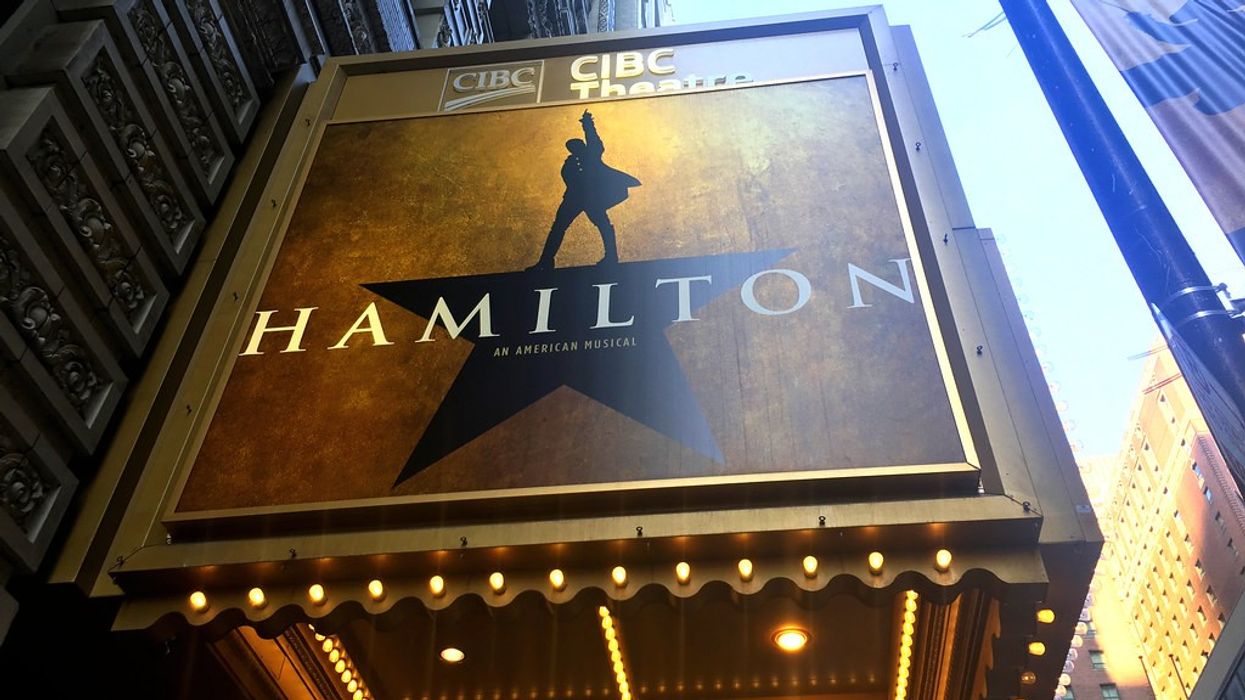This is How the Biggest Theatrical Show in a Generation Was Captured on Screen
This worked a little bit better than CATS.

Adapting a stage performance for the screen is complicated... how come this version never missed a beat?
Hamilton hit the stage in 2015, and it's been blowing sold-out audiences away ever since. A big-screen version was always inevitable. Lin-Manual Miranda's jazz/hip-hop retelling of the life of founding father Alexander Hamilton has won all kinds of awards, including a Pulitzer. But how do you take something so explosive and experiential to the big screen?
Interestingly, it has come to the small screen first due to the current state of the world. Even so, it has amazed and thrilled audiences in this new format, not missing a beat.
How?
According to the New York Times, over the course of three days in June of 2016, the original cast recorded stage performances of the show
Director Thomas Kail and his DP had a plan.
Cinematographer Declan Quinn watched the show for months, poring over the script, taking careful notes about how to get the right angle for each moment. He placed 9 cameras in the theater. One with a view toward the audience through a hole cut into the back of the stage set, one fixed on the balcony rail for a wide shot, and seven hidden behind black drapes so they would be less distracting to theatergoers — to shoot a Sunday matinee and a Tuesday evening show. Between those performances, the cast ran through 13 of the 46 numbers, but this time with onstage equipment — a Steadicam, a crane, and a dolly-mounted camera — for close-ups and overheads.
In the words of director Thomas Kail, "I didn’t want to pretend we weren’t in the theater."
Now if you've watched stage performances recorded, they often stink. Failing to work as filmed works of art, or as staged ones.
Capturing that experience simply isn't easy. What Quinn and Kail did is nothing short of remarkable. Instead of being removed entirely from the action, they used the tools of cinema to get us 'the best seat in the house', without removing the in-person experience.
Which is, let's be honest, absolutely critical to a stage performance. Amazingly, embracing the medium the art form exists in actually helped create a version of it that works in another medium. But the balance was just right and the modern tools and capture devices work.
Look no further than King George's '"You'll Be Back'" show-stopper for evidence.
Of course, cinema has certainly been excellent at creating powerful musical sequences on screen. From the work of Busby Berkley to Team America: World Police there is so much to be in awe of.
One of the hallmarks of great filmmaking is choosing the right tools and processes for the story to convey it properly. In the case of Hamilton, the choices were unique and correct.
Is there a version that works that takes us to a period, with locations and VFX battles? Maybe. I'd be interested in Baz Luhrman's take... maybe Jay-Z and Nas would be willing to play roles?
Regardless, this version is excellent.
Hamilton Today
Even just 5 years ago when Hamilton first hit stages, the world was very different as it comes home to audiences' TVs today. We are coming off of months quarantined due to COVID-19, which means the theatrical experience of Hamilton feels far from our reality. The people who create such a show are waiting for work, hoping things change soon. The United States is in a deep economic depression, and demonstrations and riots have been in our streets since the killing of George Floyd. The nation's' original sin' of slavery continues to haunt, and divide us. As it should.
It's an odd time, in a sense, to celebrate a cast of people of color as the founding fathers and their peers. Or is it exactly the right time?
If it's cause for reflection or analytical thought, it can be the latter. The spirit of revolution and change is strong in Hamilton. Maybe we can take a lesson about that as we look at something that currently seems so broken in so many ways.
Or can we appreciate some of the people who wrote our history, flaws included? Can we see their strengths? The ones who seemed to see clearly and the ones who didn't?
Or maybe we can just appreciate the work for being so entertaining. It's beautifully brought to life on the screen, and as creators, we can all take a lesson from how to craft such a distinctly in-person experience remotely. This may be the future of our field for some time.
Source: New York Times











